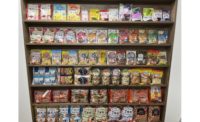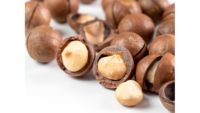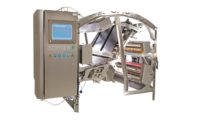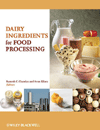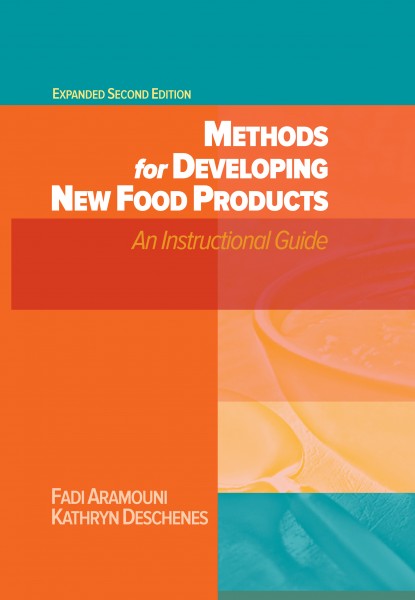Case study: Pre-COVID optical sorting investment pays off for Harris Woolf






 Since investing in a five-strong SORTEX FB2 optical sorting line and an additional stand-alone FB2 sorter, U.S. almond huller processor Harris Woolf has been able to streamline its entire process. 70 million pounds of almonds which once took 8-10 months to process, now takes the company just 5-6 months. The huller processor has also been able to increase its cleaning and sizing throughput from 12.000 to 30.000 pounds per hour, performing all of its cleaning on just one pass. This pre-COVID investment put Harris Woolf in a strong position when the pandemic struck, enabling staff to adhere to social distancing regulations whilst the company continued full operation of its packing line.
Since investing in a five-strong SORTEX FB2 optical sorting line and an additional stand-alone FB2 sorter, U.S. almond huller processor Harris Woolf has been able to streamline its entire process. 70 million pounds of almonds which once took 8-10 months to process, now takes the company just 5-6 months. The huller processor has also been able to increase its cleaning and sizing throughput from 12.000 to 30.000 pounds per hour, performing all of its cleaning on just one pass. This pre-COVID investment put Harris Woolf in a strong position when the pandemic struck, enabling staff to adhere to social distancing regulations whilst the company continued full operation of its packing line.
Roughly halfway between Los Angeles and San Francisco lies Coalinga, a city in Fresno County on the western edge of the San Joaquin Valley in central California. Just 17.000 people live in Coalinga, but for 30 years it has also been home to the almond processing plant of Harris Woolf, U.S. almond processor and the world’s premier independent wholesale almond product producer.
“Three decades ago, the Harris and the Woolf farming families joined forces to set up a huller and shelling business. Later they began processing, packaging and shipping almond products,” explains Harris Woolf Coalinga Plant Manager, Tom Carter.
Harris Woolf is unique for one key reason. Traditionally, hullers are known for taking almonds from the ground, removing the shell and hull to leave the kernel, while processors are responsible for cleaning the kernels and preparing them for shipment to end-users. Harris Woolf however, covers all bases —it’s a rare huller-processor.
Investing in the best technology
Carter mentions: “We grow and process our own almonds and also process them for other growers. We ship in-shell almonds and kernels to the U.S., Europe, Asia, the Middle East and elsewhere. Our almond kernels are processed throughout the year at Coalinga, while our in-shell almonds are more of a seasonal endeavor.”
The company believes in using only the very best technology, a strategy that continues to deliver great rewards. Which is the reason why Harris Woolf invested in a game changing Bühler optical sorting line for kernels that includes five SORTEX FB2 optical sorters. They also added an additional FB2 sorter in their huller for cleaning in-shell almonds.
Defect reduction
“Our average defects are now 0.02 percent foreign material and 0.62 percent serious damage, which is roughly a 30 percent improvement over previous sorters we’ve used. This cleaner material has allowed us to increase our packing line production by 40 percent,” Carter mentions.
Intake, sorting and sizing takes place on Harris Woolf’s high-speed SORTEX line which has been delivering products ready for export since 2019.
Insect damage, foreign material, and other defects must be removed during the cleaning stage before the almonds reach the packing line. After hulling, the kernels (i.e. natural almonds) are forwarded to the processing stage, where the multistage, multi-pass systems of the four FB2 machines comes into play, through which 30.000 pounds/15 tons of almonds pass each hour. A fifth SORTEX FB2 is then employed to clean up any reject material.
Harris Woolf also employs a standalone SORTEX FB2 for preparing the in-shell almonds for export. This machine ensures products are “pack ready” in one pass. “In one process we can clean our almonds and then they’re sized and packaged. A process that used to have multiple cleaning steps now has just one, which saves a lot of time and effort,” Carter states.
Production speed boost
He goes on to reveal that Harris Woolf has been able to increase its processing speed massively. “We ran 70 million pounds of almonds this year, which used to take us 8-10 months, but now it takes only 5-6 months. The process has been streamlined significantly. We’ve increased our cleaning and sizing throughput from 12.000 pounds to 30.000 pounds per hour.”
Why did Harris Woolf pick the SORTEX FB2? Carter replies: “Bühler SORTEX’s reputation; their system was more technically advanced; it had a more open design, which is better for hygiene; the cameras; the robust user interface was easier for our operators to use.
“We’ve built up a great relationship with the local Bühler team based in Stockton [east of San Francisco] during our various training sessions with them. This is important because frankly, equipment is only as good as the support you receive on the ground. So, for us, with Bühler it’s been a win-win situation!”
About Bühler
Bühler is driven by its purpose of creating innovations for a better world, balancing the needs of economy, humanity, and nature. As a relevant solution partner for the food and mobility industries, Bühler is committed to reduce energy, waste, and water in its customers’ value chains by 50 percent by 2025. Billions of people come into contact with Bühler technologies as they cover their basic needs for food and mobility every day. Two billion people each day enjoy foods produced on Bühler equipment; and one billion people travel in vehicles manufactured using parts produced with Bühler technology. Countless people wear eyeglasses, use smart phones, and read newspapers and magazines—all of which depend on Bühler process technologies and solutions. Having this global relevance, Bühler is in a unique position to turn today’s global challenges into sustainable business. Bühler contributes to safely feeding the world and is doing its part to protect the climate, producing solutions that make cars, buildings, and machinery more energy efficient.
Bühler invests up to 5 percent of turnover into research and development. In 2020, some 12,500 employees generated a turnover of CHF 2.7 billion. As a Swiss family-owned company, Bühler is active in 140 countries around the world and operates a global network of 100 service stations, 33 manufacturing sites, and application and training centers in 24 locations.
Looking for a reprint of this article?
From high-res PDFs to custom plaques, order your copy today!




